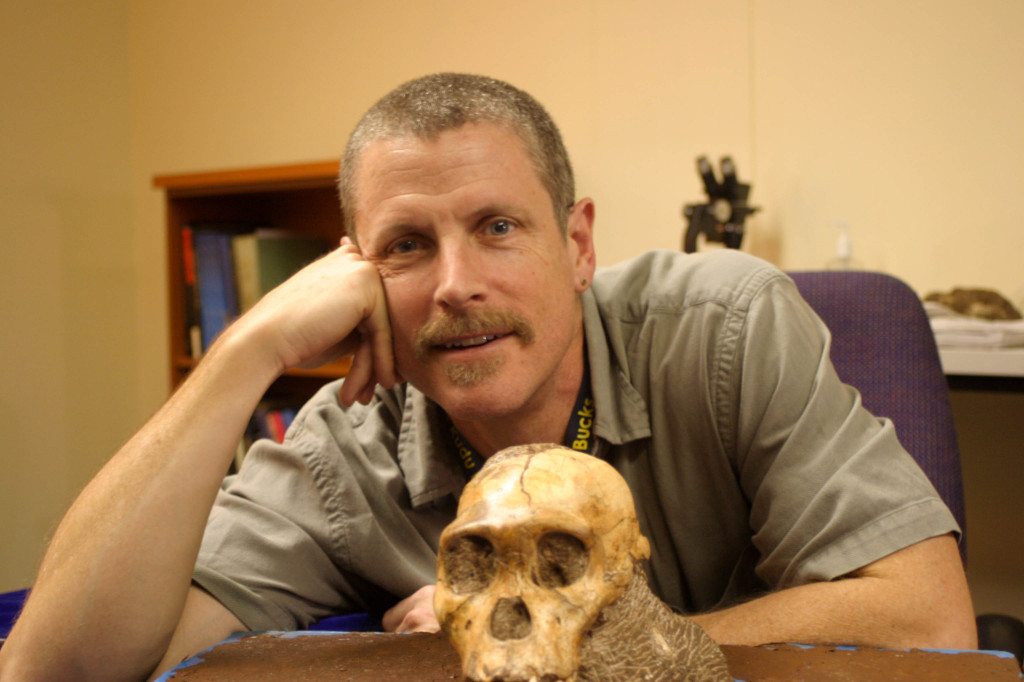Podcast: Play in new window | Download
Subscribe: Apple Podcasts | RSS
Dr. Steven Churchill is a and past chair of the Department of Evolutionary Anthropology at Duke University. He also holds a secondary appointment as an Honorary Reader in the Evolutionary Studies Institute and Centre for Excellence in PalaeoSciences at the University of the Witwatersrand (South Africa). He received his B.S. from Virginia Tech and Masters and PhD from the University of New Mexico. Afterwards, Steve served as a Teaching Associate and Visiting Professor at the University of New Mexico before joining the faculty at Duke University in 1995. He has also worked as an Associate at the Bernard Price Institute of Palaeontology at the University of Wits in South Africa. Steve is here with us today to tell us about his journey through life and science.
Steve is a paleontologist who studies the fossil record of human evolution, especially that of early members of our genus (Homo) that lived between about two million to ten thousand years ago. Much of his work has focused on the Neandertals, an extinct species that lived in Europe and western Asia during the Ice Age, and that went extinct about thirty thousand years ago. Dr. Churchill applies principles of biomechanics and functional morphology in his analyses of the bones of these early humans, in order to make inferences about their adaptive strategies, ecology, and energetics. Along these lines, he is particularly interested in the nature of the hunting methods and technology that these earlier groups employed. Dr. Churchill is also a member of the team that discovered and described a new species of early human, Australopithecus sediba, from 1.98 million year old deposits at the site of Malapa, South Africa. This team has recently recovered a very large number of human fossils from another South African cave system (known as Rising Star), which they are currently working up for publication.

Leave a Reply